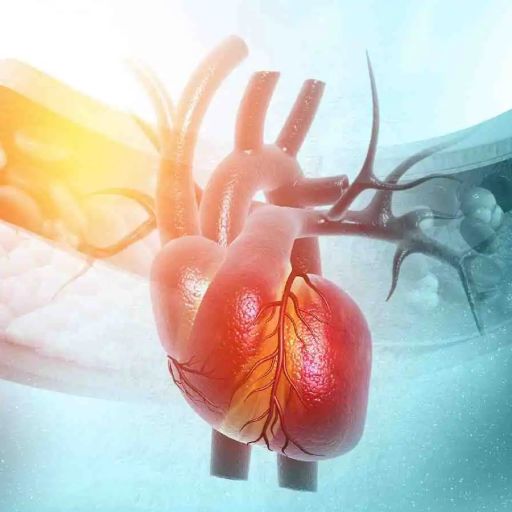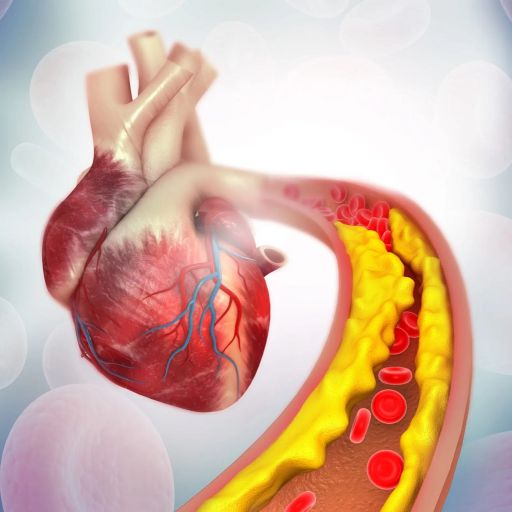Advertisement
For years, we’ve heard that diet and cholesterol are key to heart health. But recent research shows it might not be that simple. Cholesterol, a fatlike substance, cruises around your bloodstream in two forms.
●HDL: It grabs cholesterol and sends it to the liver for a one-way trip out of your body.
●LDL: It delivers cholesterol where it’s needed but can overstay its welcome, clogging your arteries.
Your liver makes all the cholesterol you need, but food can add extra. The goal? High HDL, low LDL. Too much LDL can block arteries, cutting off blood to your heart, brain, or organs, leading to strokes, heart attacks, or heart failure.
That being said, the cholesterol-heart disease connections need to be discussed.
Cholesterol and coronary heart disease
High cholesterol's biggest threat? Coronary heart disease, which can lead to a deadly heart attack. When cholesterol levels are too high, it builds up in artery walls. This build up, called plaque, hardens arteries and restricts blood flow, a condition known as atherosclerosis.
In arteries supplying the heart, narrowed areas can slow blood flow to heart muscles. Plaques can also break off, blocking smaller blood vessels. Sometimes, inflammatory cells gather around broken plaque, narrowing the area even more.
Reduced blood flow can cause chest pain (angina). If a vessel is completely blocked, it can trigger a heart attack.

Cholesterol, red meat, and heart health: What the latest research really says
While the 2020–2025 Dietary Guidelines do not include specific limits regarding cholesterol consumption, it is advised to keep its intake as low as possible. Make sure your diet stays nutritious.
A 2020 study talks about the intersection of red meat and heart disease.
It highlighted the importance of replacing red meat with substitutes and switching plant proteins. All these steps can lower LDL cholesterol. Cholesterol-containing foods are usually also high in saturates.
These fats may cause inflammation and affect gut health, possibly leading to worse outcomes than cholesterol itself.
However, according to some conflicting research, heart disease risk isn't just about cholesterol. As reported in 2019 by an American Heart Association sponsor study, cholesterol present in food might not be as dangerous as previously accepted.
Other research done in 2019 explains that there is limited evidence regarding the effect of removing processed red meat from our diet. It’s important to note, though, that these studies only show associations, not causes. Few randomized trials have been done.
Sources of cholesterol in your diet
Diet still matters when it comes to cholesterol. But there’s a lot more to it than just watching your intake. Let’s break it down.
●Trans fats: These guys are the ultimate villains. They jack up your LDL (bad) cholesterol and drop your HDL (good) cholesterol. Double trouble. Natural trans fats are found in meat and dairy, but the real culprit is processed food.
The FDA banned partially hydrogenated oils (PHOs) in 2018. So, skip anything with trans fats on the label. They offer zero nutritional value.
●Saturated fats: Saturated fats are LDL boosters, so limit them. Think of red meat, pastries, fried foods, and full-fat dairy. Delicious, yes. But too much can lead to extra pounds and a higher risk of heart disease. So, savor the treats, but don’t go overboard!

Healthier food options for controlling cholesterol
Its more than just about removing unhealthy foods; it is also about adding healthy food items. There is a possibility of reducing heart disease with the help of a good diet.
According to the American Heart Association, the following food items should be added to your diet to control LDL, HDL, and weight.
●Whole grains: Integrate foods like Wai Wait, brown rice, whole grain pasta, whole grain bread, and so on.
●Fruits and vegetables: A colorful variety.
●Low-fat or plant-based dairy: fat-free milk or almond milk.
●Lean proteins: skinless poultry, lean meats, and fatty fish like salmon, tuna, and sardines.
●Plant proteins: nuts, seeds, tofu, beans, and quinoa.
●Healthy oils: olive oil or other nontropical oils.
Healthy cooking tips:
●Swap butter for canola or olive oil.
Advertisement
●Grill, broil, or bake instead of frying.
●Trim the fat and remove skin from poultry.
●Use a rack to drain fat from meats in the oven.
●Skip basting with fatty drippings. Keep it lean!
What are the risk factors for heart disease?
High cholesterol is one risk factor for heart disease. But it’s not the only one. Other common factors, according to the AHA, include:
●High blood pressure
●Diabetes or prediabetes
●Being overweight or obese
●Smoking
●Family history of heart disease
●Metabolic syndrome
●Chronic kidney disease
●Chronic inflammation, like rheumatoid arthritis, psoriasis, or HIV/AIDS
●History of preeclampsia or early menopause
●High triglycerides or an abnormal ankle-brachial index
Your risk goes up with each factor. Some, like age and genetics, are out of your control. But others, like diet and exercise, are within your reach.

Preventing heart disease
Here’s how to lower your risk:
●Watch your weight: Excess weight increases LDL and stresses your heart.
●Get active: Exercise controls weight and improves cholesterol.
●Eat smart: Fill up on veggies, fruits, and whole grains. Choose lean meats and fish, and skip trans fats.
●Quit smoking: Ask your doctor about programs to help you quit.
●Get an annual checkup:If heart disease runs in the family, early detection is key to prevention.
Advice from doctors
LDL cholesterol (the "bad" kind) high? HDL cholesterol (the "good" kind) low? That’s a recipe for heart disease risk.
Some factors, like your genes and age, are out of your hands. But good news: diet, exercise, and kicking smoking to the curb are totally in your control.
If ignored, heart disease doesn’t play nice. It can lead to:
●Oxygen-starved heart damage
●Irregular heartbeats
●Stroke
●Heart attack
●Even heart failure
Heart disease is a dreaded condition that no one wants to experience. Team up with your doctor. Take your medicines as prescribed. And if something feels off, speak up. With a few smart changes, your heart—and you—can have a brighter future.
Advertisement





